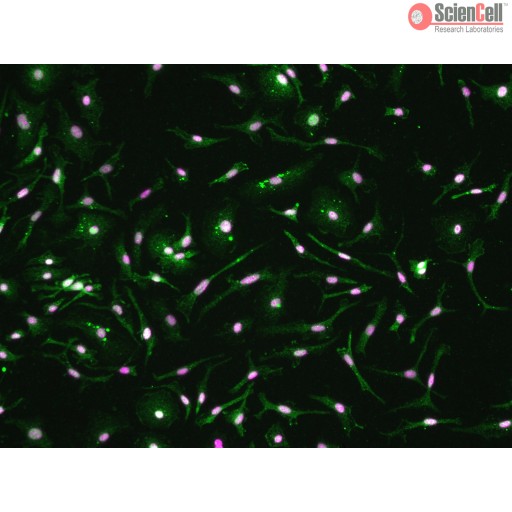ScienCell’s Mouse Microglia Used in Recent Microglial Activation Research Published in Molecular & Cellular Proteomics Journal
Microglia are a type of macrophage-like glial cell in the central nervous system (CNS) and they function as the brain’s primary immune defenders. Upon activation, microglia may act as scavengers, remove tissue debris, and clear damaged cells during CNS development or injury. There is also evidence that microglia are involved in a variety of physiological and pathological processes in the brain through interactions with neurons, other glial cells, and the production of biologically active substances such as growth factors and cytokines.
Researchers at the University of South Florida (Department of Cell Biology, Microbiology, and Molecular Biology) used ScienCell’s mouse microglia in their research on the molecular mechanisms behind classical and alternative microglial activation. Through this study, they found a group of proteins differentially expressed in the classical M1, pro-inflammatory state and M2 (M2a, M2b, M2c) alternative activation. The data revealed new insights into the similarities and differences between the various states. Additionally, the proteomic data revealed a novel activation marker DAB2, which was notably different between the various states.
Read full paper: http://www.mcponline.org/content/14/12/3173.full.pdf

